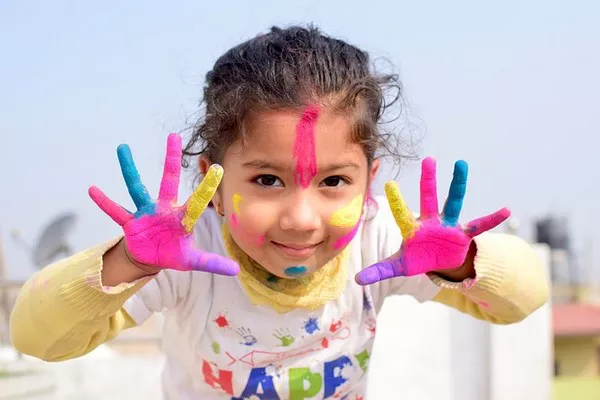American holidays are more than just dates on a calendar; they represent a tapestry woven from historical, cultural, and societal threads. From the patriotic fervor of Independence Day to the familial warmth of Thanksgiving, each holiday holds a unique place in the hearts and minds of Americans. In this article, we delve into the reasons behind the celebration of American holidays, exploring their historical origins, cultural significance, and enduring traditions.
Independence Day: Celebrating Freedom
Independence Day, commonly known as the Fourth of July, commemorates the adoption of the Declaration of Independence on July 4, 1776. This historic document declared the thirteen American colonies’ independence from British rule, paving the way for the birth of the United States of America. Independence Day celebrations typically feature fireworks, parades, barbecues, and patriotic displays, serving as a reminder of the nation’s hard-fought freedom and the principles of liberty and democracy upon which it was founded.
Thanksgiving: A Time for Gratitude and Togetherness
Thanksgiving is a quintessentially American holiday that traces its origins to a harvest feast shared by the Pilgrims and Native Americans in 1621. Today, it is celebrated on the fourth Thursday of November and is synonymous with expressions of gratitude, family gatherings, and feasting. Beyond its historical roots, Thanksgiving embodies the values of generosity, community, and appreciation for life’s blessings. It serves as an opportunity for individuals to pause, reflect, and give thanks for the abundance in their lives, fostering a sense of unity and interconnectedness among Americans.
Christmas: Joy, Tradition, and Faith
Christmas is one of the most widely celebrated holidays in the United States, observed by Christians and non-Christians alike. While its religious significance centers on the birth of Jesus Christ, Christmas has evolved into a cultural phenomenon characterized by festive decorations, gift-giving, and time-honored traditions. From decorating Christmas trees to singing carols and exchanging presents, the holiday evokes feelings of warmth, joy, and goodwill. Christmas also serves as a time for families to come together, creating cherished memories and strengthening bonds across generations.
New Year’s Eve: Ringing in Hope and Renewal
New Year’s Eve marks the transition from the old year to the new, offering an opportunity for reflection, celebration, and anticipation. As the clock strikes midnight on December 31st, revelers across the country gather to bid farewell to the past and welcome the future with hope and optimism. New Year’s Eve festivities often include parties, fireworks, and the iconic Times Square ball drop in New York City. Beyond the revelry, the holiday symbolizes fresh beginnings, second chances, and the promise of a brighter tomorrow.
Memorial Day: Honoring Sacrifice and Remembrance
Memorial Day is a solemn occasion dedicated to honoring the men and women who have died while serving in the United States Armed Forces. Observed on the last Monday of May, the holiday originated as Decoration Day after the American Civil War, when communities began decorating the graves of fallen soldiers with flowers. Today, Memorial Day serves as a time of reflection, remembrance, and gratitude for the ultimate sacrifice made by those who served their country. It also marks the unofficial start of summer, with many Americans observing the holiday with picnics, barbecues, and outdoor activities.
Labor Day: Recognizing the Contributions of Workers
Labor Day pays tribute to the contributions and achievements of American workers, serving as a celebration of the labor movement and the social and economic progress it has brought about. Observed on the first Monday of September, the holiday honors the countless men and women who have labored to build and sustain the nation’s prosperity. Labor Day weekend is often associated with barbecues, parades, and recreational activities, providing a well-deserved opportunity for relaxation and leisure.
Martin Luther King Jr. Day: Upholding Civil Rights and Equality
Martin Luther King Jr. Day commemorates the life and legacy of Dr. Martin Luther King Jr., a prominent leader in the civil rights movement. Observed on the third Monday of January, the holiday honors Dr. King’s tireless advocacy for racial equality, justice, and nonviolent resistance. Beyond honoring Dr. King himself, the holiday serves as a call to action for Americans to continue the ongoing struggle for civil rights and social justice. It is a time for reflection, education, and community service, inspiring individuals to uphold the values of equality, inclusivity, and compassion.
Conclusion
American holidays are more than mere dates on a calendar; they are expressions of the nation’s history, values, and identity. From the patriotic fervor of Independence Day to the familial warmth of Thanksgiving, each holiday serves as a testament to the ideals and aspirations that unite Americans across diverse backgrounds and experiences. By commemorating these holidays, we honor the past, celebrate the present, and envision a future built upon the principles of freedom, unity, and equality. As we gather with family and friends to mark these occasions, let us remember the significance behind the celebrations and the enduring legacy they represent.
Related topics:Why Christmas Is an American Holiday

